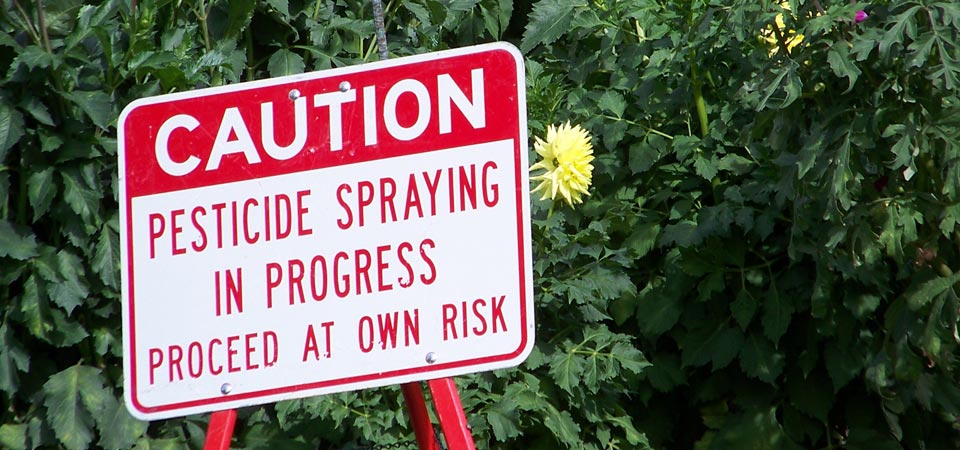I believe it is time that we get a handle on how we use pesticides in public areas. Right now, any pest control company can use any registered pesticide in public buildings and on public property. Because of the potential hazards of the pesticides, we need to control this. There are several issues that are very important.First, just because a pest control person is licensed by the State of New Mexico does not mean he/she is competent. There are a number of different pesticide categories, including structural pest control, vertebrate pest control, fumigation, wood destroying organism control, lawn and ornamental pest control, weed control and vector control. These are only a fraction of the categories. The state requires the pesticide applicator to get four Continuing Education Units (CEUs) every year. They can get four CEUs in any category (except wood destroying organism control) and be recertified in all of the categories.This is ridiculous. Everyone should be required to get CEUs in every category on their license. So just because your exterminator has a license in a category, doesn’t mean he has taken any CEU classes to update his knowledge in that category.Secondly, and this is very important, research published recently in Environmental Health Perspectives supports the theory that children whose mothers are exposed to some pesticides during pregnancy may be at increased risk for autism spectrum disorders.Researchers at the University of California, Davis, looked at the medical records of 970 participants. They found pregnant women who lived within a mile of an area treated with three different types of pesticides were at a two-thirds higher risk of having a child with ASD or developmental delays. These types of pesticides include synthetic pyrethroids, organophosphates and carbamates. These pesticide-treated areas included parks, golf courses, pastures and roadsides. This would include spraying for mosquitoes. The study discovered that women exposed to pesticides during their second or third trimesters were even more likely to have a child born with developmental delays or autism. The findings add to the mounting evidence linking autism and developmental delay to pesticide exposure during pregnancy.Third, herbicides that contain glyphosates are frequently sprayed on public areas, in parks, along roadways and other areas where people can unknowingly become exposed to them. There is a study published in Entropy, a peer-reviewed journal that exposes the health hazards of glyphosates. The conclusion below says it all:Given the known toxic effects of glyphosate reviewed here and the plausibility that they are negatively impacting health worldwide, it is imperative for more independent research to take place to validate the ideas presented here, and to take immediate action, if they are verified, to drastically curtail the use of glyphosate in agriculture. Glyphosate is likely to be pervasive in our food supply, and, contrary to being essentially nontoxic, it may in fact be the most biologically disruptive chemical in our environment.I believe that the studies definitely show that synthetic pyrethroids, organophosphates, carbamates and glyphosates should not be used in public areas without the knowledge of the public. They should definitely never be used in schools, day care centers, medical facilities and similar places. I would urge the state government to pass legislation that prohibits the use of these pesticides in public areas. If people want to use these toxic chemicals in and around their homes, that is fine, but nobody should be unknowingly exposed to them. If the legislators do not want to prohibit the use of these chemicals in public areas, then they should absolutely require pesticide notification so the public is aware of the pesticides before they enter a building or public area. The notification should include the name of the pesticide, the pests being treated for, the name, address and phone number of the company applying the pesticides and where people can get copies of the pesticide label and Material Safety Data Sheet.I also recommend that Albuquerque and Bernalillo County require the same regulations as mentioned, either totally eliminating the pesticides mentioned from use in public buildings and on public property, or require pesticide notification.I ask that legislators make pesticide applicators get yearly training in all the categories on their license. To get training in one category and being re-certified in many categories is patently ridiculous.
If you have any pest questions, you can contact The Bugman at askthebugman2013@gmail.com or call him at (505) 385-2820. You can also go to his webpage at www.bugmansbugclub.com and join the Bug Club. You will get a lot of information on ants and all other household pests.





